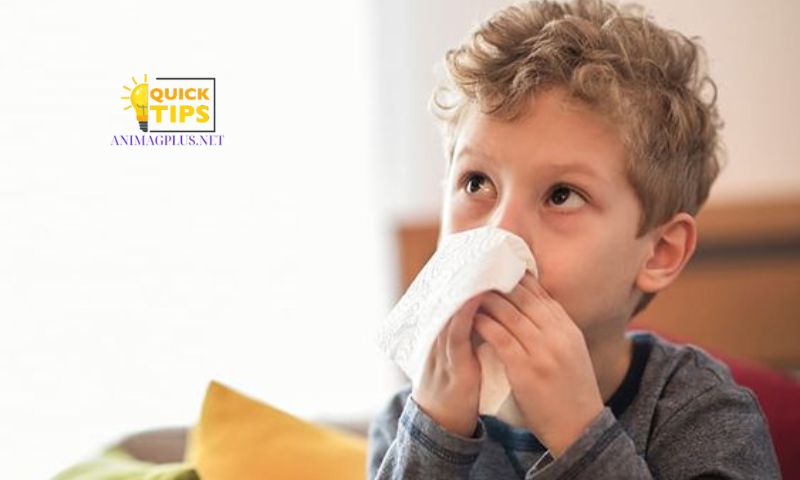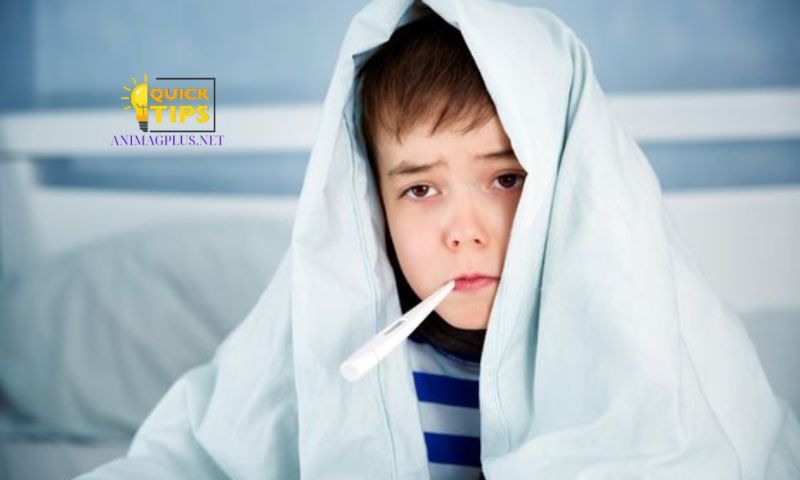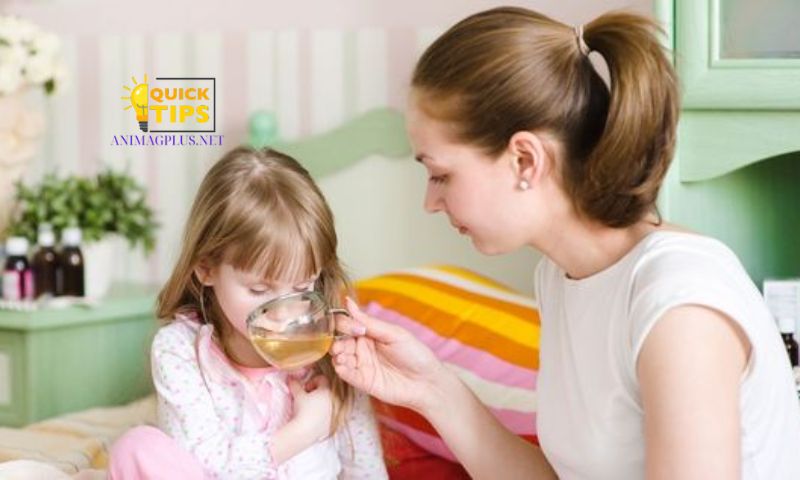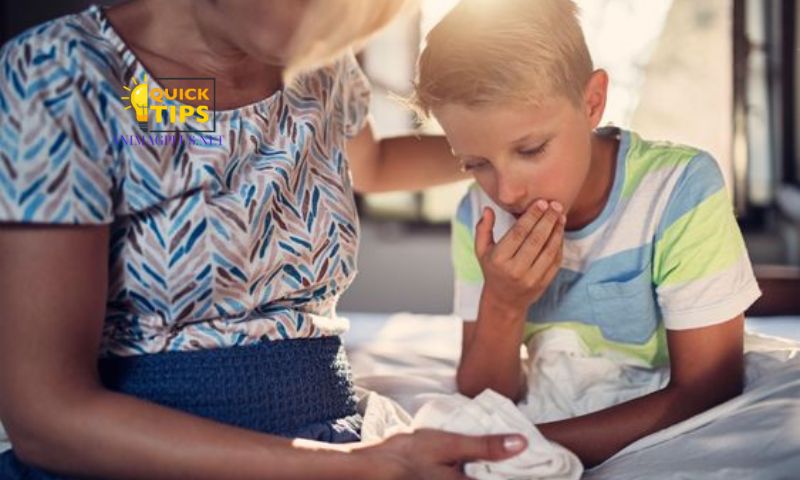Pneumonia is a serious infection in children, requiring timely medical intervention. Alongside adhering to medical treatment, parents can apply some home remedies to support their child’s recovery from pneumonia. This article from Animagplus will introduce useful Home Remedies for Treating Pneumonia in Children to help care for and alleviate the symptoms of pneumonia in children.
What is Pneumonia?

Pneumonia is an infection of the lungs caused by bacteria, viruses, or fungi. This illness causes the lungs to become inflamed, leading to difficulty breathing, coughing, and fever. Pneumonia in children is a serious health concern, especially for young children, as their immune systems are not fully developed.
Symptoms of Pneumonia in Children
Common symptoms of pneumonia in children include:
- Cough, often producing phlegm
- Fever, which can be high
- Difficulty breathing or rapid breathing
- Fatigue and lethargy
- Chest pain, especially when coughing or breathing deeply
- Loss of appetite and vomiting
If your child shows these signs, it is crucial to take them to a doctor immediately for a proper diagnosis and treatment.
Home Remedies for Treating Pneumonia in Children

Take Your Child to the Doctor
The most important first step is to take your child to a doctor for a proper diagnosis and treatment. The doctor will determine the cause of the illness and prescribe appropriate medication. Pneumonia may require antibiotics if it is caused by bacteria. For viral pneumonia, the doctor will advise on home care and monitor the child’s condition.
Ensure Your Child Drinks Plenty of Fluids
Drinking enough fluids helps keep the body hydrated and thins the mucus in the lungs, making it easier for the child to expel it. To encourage your child to drink fluids, you can:
- Offer warm water
- Give diluted fruit juices
- Avoid caffeinated or overly sugary drinks
Rest and Recovery
Adequate rest is crucial for the child’s body to recover quickly. Create a quiet, comfortable environment to help your child get sufficient sleep. Ensure your child sleeps well at night and takes naps during the day if needed.
Provide Nutritious Food
A healthy diet helps strengthen the immune system and supports recovery. Offer your child nutritious foods such as:
- Fruits and vegetables
- Protein-rich foods like meat, fish, and eggs
- Dairy products
- Nuts and grains
Keep Your Child Warm

Make sure your child stays warm, especially during colder months. However, be cautious not to overheat your child or cover them with too many blankets when they have a fever, as this can worsen their condition.
Use a Humidifier
Using a humidifier in your child’s room can help moisten the air, soothe the respiratory tract, and reduce coughing. Ensure you clean the humidifier regularly to prevent bacterial growth.
Follow and Adhere to Medication Regimen
If the doctor prescribes medication, follow the regimen and dosage precisely. Do not stop the medication prematurely, even if your child seems to have recovered. This ensures that the bacteria causing the illness are completely eradicated and prevents antibiotic resistance.
Maintain a Clean Living Environment
Keep the house and the surrounding area clean to reduce the risk of additional infections. Regularly clean surfaces, wash bedding, and sanitize your child’s toys. Ensure your child washes their hands frequently, especially before eating and after using the bathroom.
Clean Your Child’s Nasal and Throat Passages
Cleaning your child’s nasal and throat passages with saline solution helps clear the airways and reduce mucus. You can use a saline spray or dropper to administer saline solution into your child’s nose. Do this several times a day to keep their nasal passages clear.
Avoid Smoke and Other Irritants
Cigarette smoke and other irritants can exacerbate pneumonia symptoms. Keep your child away from smoking areas and other sources of irritation. If there are smokers in the house, ask them to smoke outside and away from the child.
When to Take Your Child to the Hospital

Serious Signs to Watch For
Take your child to the hospital immediately if they show any of the following signs:
- Difficulty breathing or rapid breathing
- Blue lips or fingernails
- High fever that does not subside
- Condition not improving after a few days of home treatment
- Lethargy, unresponsiveness, or difficulty waking up
What to Prepare When Taking Your Child to the Hospital
When taking your child to the hospital, prepare necessary medical information such as:
- A list of symptoms and their onset
- Medications your child is currently taking
- Medical history and any past illnesses
Ensure your child stays warm during the journey and avoid exposing them to others to prevent further infection.
Conclusion
Proper care and treatment of pneumonia are vital to ensure your child’s health and recovery. By following the Home Remedies for Treating Pneumonia in Children above, you can help alleviate symptoms and support the treatment process. However, always remember that taking your child to a doctor for an accurate diagnosis and appropriate treatment is essential. Monitor your child’s condition closely and do not hesitate to take them to the hospital if there are serious signs.
Frequently Asked Questions (FAQ)
What is pneumonia in children?
Pneumonia is an infection of the lungs caused by bacteria, viruses, or fungi. This illness causes the lungs to become inflamed, leading to difficulty breathing, coughing, and fever.
What are the signs that my child has pneumonia?
Common signs include coughing, fever, difficulty breathing, rapid breathing, fatigue, chest pain, loss of appetite, and vomiting.
How can I prevent pneumonia in my child?
Ensure your child is fully vaccinated, maintain good personal hygiene, provide a nutritious diet, and keep them away from sources of infection.
Is it necessary to use antibiotics for children with pneumonia?
The use of antibiotics depends on the cause of the illness. If pneumonia is bacterial, the doctor will prescribe antibiotics. Viral pneumonia does not require antibiotics but still needs medical care.
When should I take my child to the doctor for pneumonia?
If your child shows symptoms of pneumonia or their condition does not improve after a few days of home treatment, take them to the doctor immediately.

